
Nina Simone was an American singer, songwriter, pianist, composer, arranger, and civil rights activist. Her music spanned styles including classical, folk, gospel, blues, jazz, R&B, and pop. Her piano playing was strongly influenced by baroque and classical music, especially Johann Sebastian Bach, and accompanied expressive, jazz-like singing in her contralto voice.
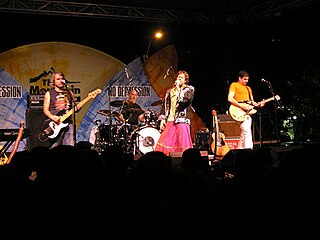
Hothouse Flowers are an Irish rock band that combine traditional Irish music with influences from soul, gospel and rock. Formed in 1985 in Dublin, they started as street performers. Their first album, People (1988), was the most successful debut album in Irish history, reaching No. 1 in Ireland and No. 2 in the UK. After two more albums and extensive touring, the group separated in 1994. Since getting back together in 1998, the band members have been sporadically issuing new songs and touring, but also pursuing solo careers.

"Doin' Time" is a song by American band Sublime, appearing as the closing track on their self-titled third album. The lyrics tell of a cheating girlfriend, whose infidelities and poor treatment of her lover make him feel like he is in prison. It was released as a single on November 25, 1997; the disc contained alternate versions of the song by Wyclef Jean and the Pharcyde. Additional versions appeared on the post-Bradley Nowell compilation album Second-hand Smoke and several bootlegs, including one with Snoop Dogg.
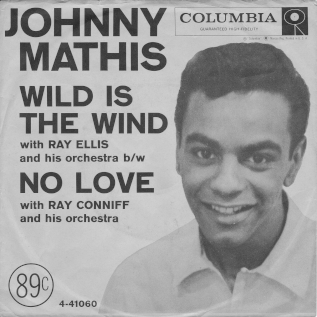
"Wild Is the Wind" is a song written by Dimitri Tiomkin and Ned Washington for the 1957 film Wild Is the Wind. Johnny Mathis recorded the song for the film and released it as a single in November 1957. Mathis' version reached No. 22 on the Billboard chart. It was nominated for an Academy Award for Best Song in 1958, but lost to "All the Way" by Jimmy Van Heusen and Sammy Cahn from The Joker is Wild.

"Sinner Man" or "Sinnerman" is an African American traditional spiritual song that has been recorded by a number of performers and has been incorporated in many other media and arts. The lyrics describe a sinner attempting to hide from divine justice on Judgment Day. It was recorded in the 1950s by Les Baxter, the Swan Silvertones, the Weavers and others, before Nina Simone recorded an extended version in 1965.
"Feeling Good" is a song written by English composers Anthony Newley and Leslie Bricusse for the musical The Roar of the Greasepaint – The Smell of the Crowd. It was first performed on stage in 1964 by Cy Grant on the UK tour.

Eastern Sounds is a studio album by the jazz multi-instrumentalist and composer Yusef Lateef. It was released in April 1962 through Prestige Records on their Moodsville imprint. The recording was made in September 1961. The album features Lateef's continued exploration of Middle Eastern music, which were incorporated into his version of hard bop with a quartet featuring Barry Harris on piano. The opening track features Lateef on Chinese globular flute, generally called xun. The fusing of musical genres was not a new thing in jazz or for Lateef as his 1957 album Prayer to the East incorporated the shehnai and Middle Eastern influences in playing jazz standards. In addition to original compositions by Lateef, Eastern Sounds includes covers of themes from the films Spartacus and The Robe, which have been sampled by producers Nujabes and Blockhead, respectively.
"The More I See You" is a popular song composed by Harry Warren, with lyrics by Mack Gordon. The song was first published in 1945.
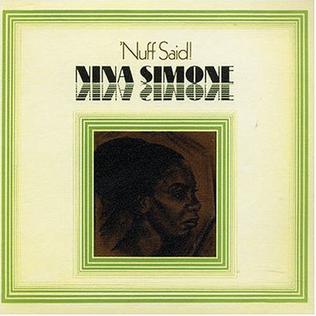
'Nuff Said! is an album by jazz singer/pianist/songwriter Nina Simone. It was recorded—excluding tracks 1, 8, and 11—at Westbury Music Fair, April 7, 1968, three days after the murder of Martin Luther King Jr. The whole program that night was dedicated to his memory. The album featured one of Simone's biggest hits in Europe, "Ain't Got No, I Got Life".

Here Comes the Sun is the thirteenth studio album by American singer Nina Simone, consisting of cover versions of songs by pop and rock musicians, released by RCA in April 1971.

"Lyin' Eyes" is a song written by Don Henley and Glenn Frey and recorded in 1975 by the American rock band Eagles, with Frey singing lead vocals. It was the second single from their album One of These Nights, reaching No. 2 on the Billboard Hot 100 chart and No. 8 on the Billboard Country chart. It remained their only top 40 country hit until "How Long" in 2007–2008.

The Reminder is the third studio album by the Canadian singer-songwriter Feist. It was released on April 23, 2007 in countries outside of North America, and May 1, 2007 in the United States and Canada.
"Ain't Got No, I Got Life" is a 1968 single by American singer-songwriter Nina Simone, from her album 'Nuff Said. It is a medley of two songs, "Ain't Got No" and "I Got Life", from the musical Hair, with lyrics by James Rado and Gerome Ragni and music by Galt MacDermot. The combination of the two songs was rewritten by Simone to suit her purpose.
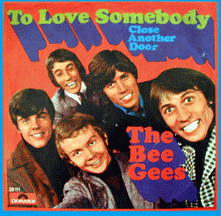
"To Love Somebody" is a song written by Barry and Robin Gibb. Produced by Robert Stigwood, it was the second single released by the Bee Gees from their international debut album, Bee Gees 1st, in 1967. The single reached No. 17 in the United States and No. 41 in the United Kingdom. The song's B-side was "Close Another Door". The single was reissued in 1980 on RSO Records with "How Can You Mend a Broken Heart" as its flipside. The song ranked at number 94 on NME magazine's "100 Best Tracks of the Sixties". The entry was a minor hit in France but reached the top 10 in Canada.
"To Be Young, Gifted and Black" is a song by Nina Simone with lyrics by Weldon Irvine. Simone introduced the song on August 17, 1969, to a crowd of 50,000 at the Harlem Cultural Festival, captured on broadcast video tape and released in 2021 as the documentary film Summer of Soul. Two months later, she recorded the song as part of her concert at Philharmonic Hall, a performance that resulted in her live album Black Gold (1970). Released as a single, it peaked at number 8 on the R&B chart and number 76 on the Hot 100 in January 1970. A cover version by Jamaican duo Bob and Marcia reached number 5 on the UK Singles Chart in 1970.
Troublemakers, is an electronic music band from Marseille. It was formed by Fred Berthet, Lionel Corsini, and Arnaud Taillefer.
"I Can't See Nobody" is a song by the Bee Gees, released first as the B-side of "New York Mining Disaster 1941". With "New York Mining Disaster 1941", this song was issued as a double A in Germany and Japan, and included on the group's third LP, Bee Gees' 1st. "I Can't See Nobody" charted for one week at number 128 on the Billboard Bubbling Under the Hot 100 in July 1967.

The Sounds of Yusef is an album by multi-instrumentalist Yusef Lateef recorded in 1957 and released on the Prestige label.
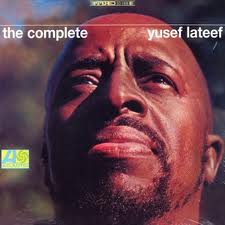
The Complete Yusef Lateef is an album by multi-instrumentalist Yusef Lateef recorded in 1967 and released on the Atlantic label.
"Blood on the Leaves" is a song by American hip hop recording artist Kanye West from his sixth studio album Yeezus (2013). In the song, West presents his thoughts on how fame can cause the destruction of relationships, while making comparisons of contemporary times to the lynching of African Americans in the United States during the pre-civil rights era. West delivers his vocals through an Auto-Tune processor, like on his 2008 album 808s & Heartbreak. It contains samples of both singer Nina Simone's 1965 rendition of Billie Holiday's song "Strange Fruit", and "R U Ready" by the duo TNGHT, who co-produced the track.












